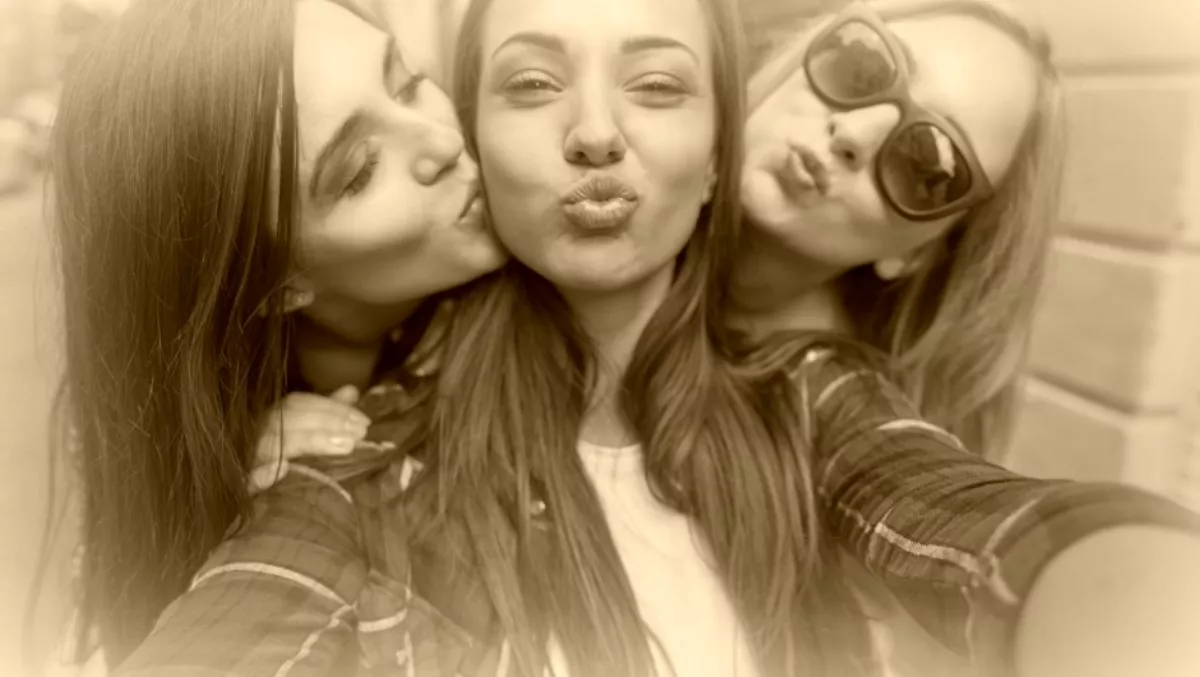
Do you take selfies at funerals?
I read a report that a third of mourners admit to taking selfies at funerals.
I came across this titbit of information as I was researching the effects social media has on the way people mourn their loved ones when they die.
When someone experiences loss, it's natural to want to share feelings and memories about the person who has passed away. That's why we speak at funerals. And these days, that's why we post messages of mourning across our various social media pages when something shitty happens.
It got me thinking about if there was a difference to posting a tribute on your Facebook page and posting a selfie at a funeral.
I'm inclined to say of course there is, but why is one condemned and not the other?
I wrote a letter to my friend who passed away and shared it on her Facebook page. She can't read it; she's not on Facebook anymore. So why did I do it?
The simple answer may be I wanted people to know how I was feeling, so they would know how much this special person means to me.
When I went to see my friend at the funeral home the day before her funeral, the funeral director reminded us not to take any photos. What the shit? They have to tell people that? I couldn't believe it. The funeral director said, "you'd be surprised".
According to an article in the Washington Times, it's quite common for people to take photos of caskets at funerals. I have no rhyme or reason for why people have the need to do this; that is whack.
The thing with selfies, arguably, is they carry a sense of vanity, where the written word may not garner the same impression. But I don't think I entirely agree with this notion.
Aren't photos just a more blatant, obvious way to get people to notice you? At the end of the day, aren't we trying to amass the same thing – sympathy?
According to the article, 36% of those who posted funeral selfies did so to solicit sympathy. I wonder if the same figure would come up if we were asked why we post tributes.
During the course of my research I got to thinking about how much social media platforms have opened the door for public grieving.
I don't like to judge people on how they decide to grieve. Some people need others to witness their grief in order to validate it, and there's nothing wrong with that. However, there is a sense that this showy kind of grief is somewhat less dignified than silent grief. Why?
Social media has allowed people to share everything in their lives: new jobs, new clothes, promotions… apparently this over sharing has become interchangeable with death.
The inclination to express feelings of loss is nothing new. But is there something about expressing these feelings on a social network that makes it trivial? Is it okay to share your feelings of loss on the same platform you shared a photo of your food the week before?
Perhaps the judgement given to those who publicly share their grief comes from a larger issue about how people internalise loss.
Personally, I think it says more about those who are judging. That society is teaching us that emotion is a bad thing, and as a result we are left to judge whether people are mourning appropriately.
In saying that, the impulse to judge how mourners grieve is also changing, because of social media. No longer do we only witness grief for a day at a funeral; social media has paved the way for grief to hang around forever.
And it gets old. And I say that as someone who did post to Facebook about my own grief – I'm a hypocrite.
It's been two weeks and every time I log onto Facebook I'm seeing her face and seeing how sad all those other people are and I can't deal with it anymore. I need to move on and stop being sad and go back to my life, but Facebook won't let me.
Obviously the way we communicate is changing, and our culture of sharing means nothing is out of bounds. I guess it is up to the individual to decide what they keep close to their chest, and for everyone else to decide if they'll Like it.


